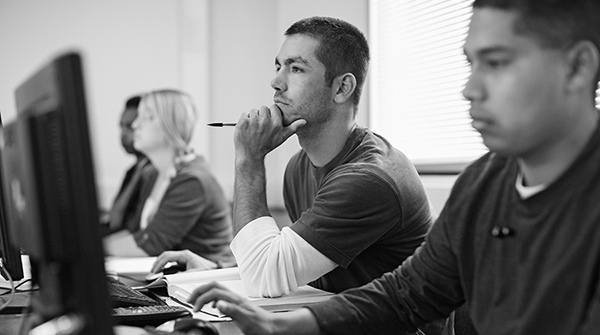Last Friday morning an angry woman from Hartlepool rang the BBC; ‘we voted out but I’ve turned up at my hospital and there’s no sign of any extra money’.
Seventeen million people, many of whom were already disillusioned and angry are starting to realise there will be no more money for the NHS and that most migrants have no intention of ‘going home’. Low paid people in the UK have seen no rise in their living standards since 2000 and over the last six years the fabric of public services has started to come apart. The likelihood now is that things in the short and medium term will get worse.
A vote inspired by the dream of British people having more power will, for the foreseeable future, leave our country and its people with less control over our destiny. Even if Brexit is somehow negotiated, over which of the following forces will a newly independent Britain exercise the most sovereignty; global capitalism, climate change, international crime, conflict, terrorism?
Yet, put almost any cross section of British people in a room together and ask them what kind of future they want for themselves and their children and a remarkably similar list will emerge; a country which offers opportunity for the ambitious but also decency for all; a country that combines tolerance with a strong sense of belonging and shared purpose; a country where leaders in all sectors earn and receive trust; a country that is a force for good in the world; a country where the quality of our lives and relationships matters more than the quantity of stuff we consume; and, most of all, a country where everyone has a chance to become the best person they can be.
Here at the RSA we talk about ‘The Power to Create’ by which we mean harnessing the opportunities provided by the modern world – most obviously technology – to enable people to live a full and creative life. It runs through all our work. On government and public services, how can we best support citizens to develop their own solutions and initiatives? In education, how can we support teachers and schools to enable every child to grow up a confident and creative learner? On the economy, how can we ensure that work is meaningful and that citizens feel the economy is something that can serve us not a system beyond our understanding or control?
Symbolising our approach we today launch our Citizens’ Economic Council. This is a two year national initiative which will show that ordinary, thoughtful citizens can understand economic ideas, enter into informed debate and explore urgently needed new ideas. After the 2015 general election we concluded that the low level of economic debate and awareness had become a major barrier to citizens making informed political choices; something grimly confirmed by the referendum debate. We spent a year designing an initiative aimed to address this issue in a fresh and powerful way. The Council will feature a diverse group of fifty to sixty citizens chosen through stratified random sampling to engage with diverse perspectives across British society, but we hope that hundreds of thousands of people will follow its work and become more confident economic citizens.
When the gap between what is happening around us and what most of us want for our country is huge and getting wider every day there is a burning question; how can we make change happen? This question rumbles like a drumbeat through all our work. As an agent of change the RSA has a unique collection of assets. Our online content and major social media presence gives us a rapid and global reach. Our research and on the ground innovation enables us to develop new ideas and test them out with our partners. And, best of all, our 28,000 strong Fellowship of like-minded, creative, committed people are working with us to be change makers themselves.
In the face of the abject failure of our political establishment the yearning for control can lead to delusion and rage. We have to believe that same yearning can be channelled positively. Across the country and around the world RSA Fellows and staff are getting together, imagining a better future and developing the practical next steps we need to take. Our belief is simple: it is not hope that leads to action but action that leads to hope. The RSA aims to be the kind of organisation the 21st century needs.
We’d love to tell you more.
Related articles
-
Did you attend the first RSA Fellowship Townhall in September 2021?
Laura Jackson
A new CEO, a new format and new ideas – Andy Haldane marked his first day as head of the RSA in September with our first virtual Fellowship Townhall.
-
Last word
Matthew Taylor
Our outgoing chief executive, Matthew Taylor, reflects on his 15 years at the RSA, how the organisation has grown and opportunities for the future.
-
Four levels of accountability
Matthew Taylor
Building the foundations for intelligent accountability




Join the discussion
Comments
Please login to post a comment or reply
Don't have an account? Click here to register.
I think that a sense of urgency is needed. In this globalised world things can deteriorate very quickly leaving little time to think before a crisis happens. With signs that FDI is drying up the idea that we can have a nice 2-3 year discussion on a way forward seems hopelessly optimistic. the currency slump leading to a balance of payments crisis could well be the next shock. think there's a need for a 100 day plan a 1 year plan and a 5-10 year to level vision and plan. In Computer Weekly, Ross Anderson illustrates how the Treasury analysis ignores network effects in the digital industries. We've already seen some funding postponements and cancellations and news from Siemens and Vodafone.It's worth looking back at ERM 92, 9/11 67 devaluation and look at how these might have been better handled with hindsight to inject speed into an important topic, Best wishes
Matthew - The best thing of course is to do the right thing; the next best is to do anything, so whatever the actual impact of CEC it's better than doing nothing. I've never known the nation as clearly divided as it is this week, and have nothing but questions as to how the RSA, and Fellows everywhere, can help grout the cracks.
As a minor aside, the anecdote with which you open (and I presume the comment is recorded in the BBC logs, allowing a fuller and more objective analysis of feedback to the BBC) would ordinarily slide by without remark - but in the present climate it jars as partisan, as making a point. We are none of us here for that.
Reaching out to help develop direct measures for the losers from globalisation is commendabe.
But is it clear that institutions such as the RSA also have an important task in confirming and promoting the absolute equal rite of all enfranchised persons to participate without distinction in our democracy. Time after time have I heard in the past weeks from otherwise intelligent, educated and liberal people who sincerely appear to believe that the disadvantaged are better off having no part in making decisions about their own future. That is quite appalling. So in addition to the 'inclusive' mission of CEC perhaps we in the RSA also need to reach out to those who are advancing such illiberal views?
It is one matter to sneer quietly at a white van and a cross of St George - but when my own peers are starting to suggest that such people be excluded from decision making on the grounds that they can't understand the issues, I identify an urgent need to address such attitudes. How can the RSA do so?
Well said
I absolutely concur that all members of the electorate are equal and when invited to vote in a referendum can put their cross in the box next to the answer they most agree with without fear of recriminations. It was a long hard slog from our forebears to win the right to vote for previously disenfranchised groups including the poor.
This is a great initiative. Now more than ever we need to bring people together from the regions and nations of the UK to listen to each other and engage in considered debate about the sort of country we want to be and the sort of economy we need to sustain it. I hope the RSA and our Fellows can play a really valuable role in building networks which connect communities in these turbulent times.
Very much agree with this. Given the political turbulence which we are seeing after the result, the role of an organisation such as ours which covers the political spectrum is needed more than ever. I think we have a key role to play in the UK-wide debate, but also (and I would say this) an absolutely crucial contribution to make within the devolved nations. In Scotland we are seeing significant ramifications from the divergence of our vote from England and Wales, and the safe yet challenging space which we can offer at the RSA will be essential to helping to positively harness the energy of those debates.